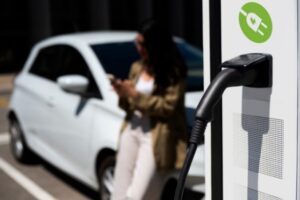 The Future of Transportation: Embracing Electric Cars
The Future of Transportation: Embracing Electric Cars
The automotive industry is undergoing a significant transformation, driven by advancements in technology and environmental considerations. Electric cars are at the forefront of this revolution. They represent a shift away from traditional internal combustion engines toward a cleaner, more sustainable form of transportation. As we move further into the 21st century, the adoption of electric cars is expected to accelerate, reshaping the way we think about mobility.
It is, powered by electricity stored in batteries, offer several advantages over their gasoline-powered counterparts. Firstly, they produce zero tailpipe emissions, which significantly reduces air pollution. This reduction is particularly important in urban areas, where high vehicle density often contributes to poor air quality. Additionally, electric cars are more energy-efficient compared to internal combustion engine vehicles. They convert a higher percentage of electrical energy from the grid to power the wheels.
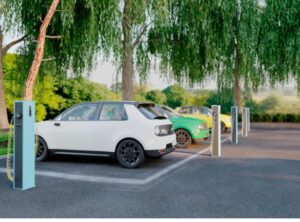
One of the main reasons for the growing popularity of it is their environmental benefits. Unlike gasoline engines, electric cars do not emit harmful pollutants such as carbon monoxide, nitrogen oxides, or particulate matter. This is crucial for combating climate change and improving public health. By reducing our reliance on fossil fuels, it contribute to a decrease in greenhouse gas emissions. As the global community strives to meet climate goals, the role of electric cars becomes increasingly significant.
Advancements in battery technology have played a crucial role in making electric cars more viable. Modern electric vehicles (EVs) are equipped with high-capacity batteries that allow for longer driving ranges. Improvements in charging infrastructure also support the widespread adoption of it. Fast-charging stations have become more common, making it easier for drivers to recharge their vehicles during long trips. This infrastructure development is essential for addressing range anxiety, a common concern among potential EV owners.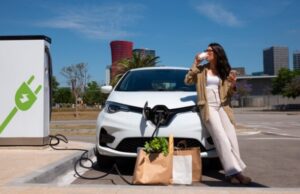
It is also benefiting from government incentives and subsidies. Many countries offer tax credits or rebates for purchasing EVs, which can offset the higher initial costs associated with these vehicles. Additionally, governments are investing in charging infrastructure to further promote the use of it. These incentives and investments are designed to make it more accessible and affordable for consumers. As these policies continue to evolve, they will likely enhance the attractiveness of electric vehicles.
The transition to electric cars is not without its challenges. One significant hurdle is the environmental impact of battery production and disposal. While electric cars themselves produce zero emissions, the production of lithium-ion batteries involves resource extraction and energy consumption. Efforts are being made to develop more sustainable battery technologies and recycling processes to address these concerns. The overall lifecycle emissions of electric cars are still lower than those of conventional vehicles, but ongoing research aims to further minimize their environmental footprint.
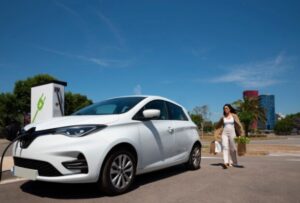
Another challenge is the current limitations of electric vehicle range. Although advancements have been made, some consumers are still concerned about the distance an electric car can travel on a single charge. Range anxiety, the fear of running out of battery power before reaching a charging station, remains a significant barrier to widespread adoption. However, as battery technology continues to improve and charging infrastructure expands, these concerns are likely to diminish.
Electric cars also face competition from other emerging technologies. Hydrogen fuel cell vehicles, for example, offer an alternative to battery electric cars. Hydrogen fuel cells produce electricity through a chemical reaction between hydrogen and oxygen, with water as the only byproduct. These vehicles can be refueled quickly and have long driving ranges. However, the infrastructure for hydrogen refueling is not as developed as that for electric charging, which limits their current adoption.
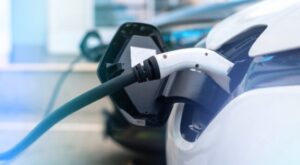
Despite these challenges, the future of electric cars looks promising. Major automakers are investing heavily in electric vehicle research and development, aiming to produce a wide range of EV models. This increased competition is likely to drive innovation and reduce costs, making electric cars more appealing to consumers. Additionally, as public awareness of environmental issues grows, there is a greater demand for sustainable transportation solutions.
The shift toward electric cars also has implications for the energy sector. As the number of electric vehicles on the road increases, there will be a higher demand for electricity. This presents an opportunity for the energy sector to invest in renewable energy sources such as wind and solar power. By integrating renewable energy into the grid, we can further reduce the carbon footprint associated with electric vehicle charging.
In conclusion, electric cars are transforming the automotive industry and offering a glimpse into a more sustainable future. Their environmental benefits, technological advancements, and government incentives are driving their adoption. While challenges remain, ongoing research and development are addressing these issues, making electric cars an increasingly viable option for consumers.As we continue to embrace this technology, we move closer to achieving a cleaner, greener transportation system. The future of electric cars holds great promise, and their role in shaping our mobility landscape will only grow stronger in the years to come.
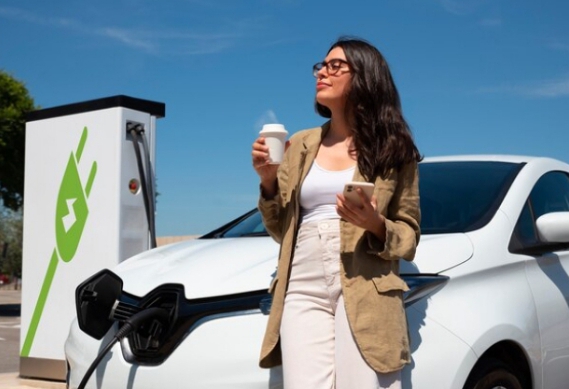
2 thoughts on “Electric cars”